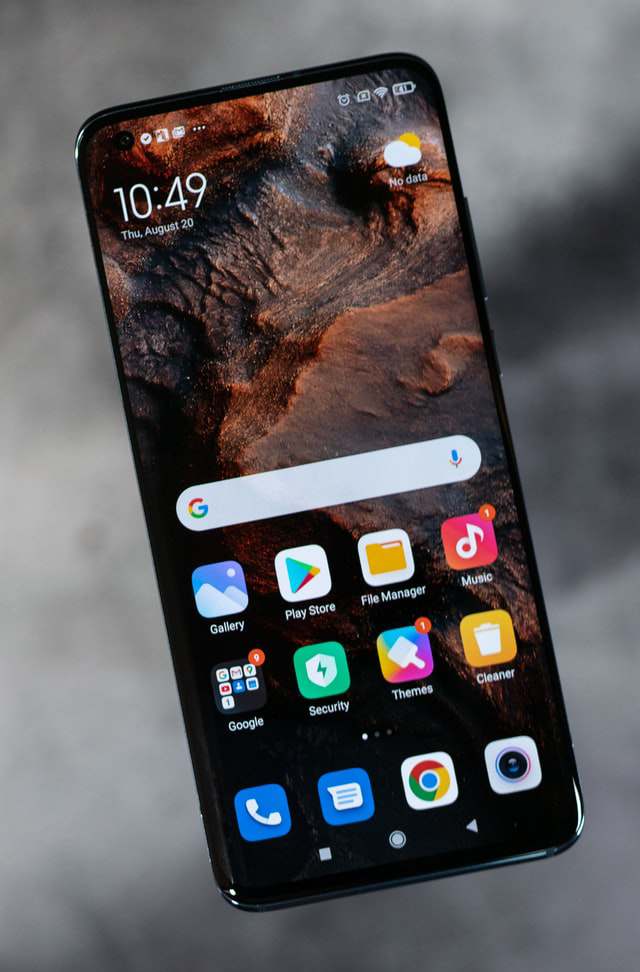Android Native App Development
When Android OS was born in 2003 its creators did not have phones in mind at all. In fact, Android Inc, founded in Palo Alto, California, created its OS to be used in digital cameras. Android described how it had created an OS that, when installed, would allow a seamless wireless connection to a PC. That PC would then connect to an “Android Datacenter,” where camera owners could store photos online on a cloud server.
As the use of digital cameras slowed down, Android Inc. decided to adapt its OS for a different purpose: to power smartphones. The rest is history and today there are more than 2.5 billion active Android devices globally.
There are a number of ways an app can be created for Android. While making use of a cross-platform solution such as Flutter or React Native is popular, there is also the option for Android Native App development.

Ready To Get Started?
First, determine your audience and what services you are going to use your mobile app to provide. If the app will be content-oriented, making use of the hybrid app framework will help you reach the widest possible audience at the most reasonable cost. However, if yours is an app that calls for the best possible level of security – a banking app perhaps – a native Android mobile app may be the best choice.
Super High Performance
As the technologies we use when developing native iOS applications are platform-specific, the code has direct access to the host’s operating system and functionalities.
This simpler, more direct interaction with the native features of the mobile devices can enhance the performance of the app, especially when it makes use of a larger amount of multimedia content.
Apps that do make use of lots of visuals and multimedia content can be prone to freezes and crashes, and so it may be the best choice to create complex iOS mobile apps like these natively.
The Best Performance
When an Android mobile app is created natively it is coded and optimised specifically for the platform, using the platform’s core programming languages and APIs. This usually results in an app that offers the highest levels of efficiency. As users utilise a mobile app created natively for Android, the contents and visual elements are already stored on the phone so load times are faster, offering a more seamless user experience.
Greater Security
Developing an Android app natively helps improve data protection and security.
More Interactive And Intuitive
Native Android mobile apps inherit their devices’ OS interfaces, which helps make them look and feel better integrated into the device they are running on. Native apps can also take better advantage of the hardware of the device including its camera, microphone, GPS and more. This also means they execute faster, leading to a better user experience.
Time and Cost Considerations
Creating apps natively for more than one operating system can significantly prolong the development process. The same code can’t be on different platforms and as programmers we do need more time, as we need to take the initial code written for iOS and convert and rewrite it for other platforms the mobile app will be deployed on, inevitably increasing costs and development time.
This simpler, more direct interaction with the native features of the mobile devices can enhance the performance of the app, especially when it makes use of a larger amount of multimedia content.
Apps that do make use of lots of visuals and multimedia content can be prone to freezes and crashes, and so it may be the best choice to create complex iOS mobile apps like these natively.
Time and Cost Considerations
Like anything, there are certain cons to choosing native Android app development. Most of those offering a mobile app prefer to cater to both Android and iOS users, and developing two native apps, one native to iOS the other to Android, will be more expensive. The process is also likely to take longer, delaying an app’s time to market.
This simpler, more direct interaction with the native features of the mobile devices can enhance the performance of the app, especially when it makes use of a larger amount of multimedia content.
Apps that do make use of lots of visuals and multimedia content can be prone to freezes and crashes, and so it may be the best choice to create complex iOS mobile apps like these natively.

Take advantage of Daren’s years of experience
If you are new to the ins and outs of mobile app development, as most clients are, deciding between commissioning a native Android App or a cross-platform alternative can be daunting. Fortunately, Daren can put his experience to great use and help you make the best choice for your unique project.
Daren provides an end-to-end app experience for all of his clients. Before a single line of code is written, he will work with you to determine just who your target audience is and how they will make use of your app. With that done he will then advise you on the question of native iOS development versus another approach.
Let’s Get Started!
Why might it be best to only build an iOS app?
If you require that your app gets to market quickly, or is available to show an investor as quickly as possible, this is very often the best strategy, as it enables us to focus on getting the app into shape and into peoples hands,and develop an Android version later.
Overall this might be the most expensive strategy, as cross platform will have a lower overall cost. But sometimes being first to market is the priority.
Is it worth only building a native Android app?
Yes, to create the ultimate app, you have to work natively. That’s not to say you won’t have an awesome app when using cross-platform technologies, but if you need the most cutting-edge native features, you might notice a significant difference.
Will you help me upload my app onto the Google Play store?
Yes, this is part of the service, whether Native or cross-platform, Daren will help you set up any developer accounts required. This needs to be done before development commences and this is part of our onboarding procedure.
Which tools and technologies do you use to build Native Android apps?
Daren uses Android studio and Java or Kotlin depending on the requirements of the app. This is the standard way to build Android apps.
Do Android users only download free apps?
There is a slight distinction between user bases in terms of free income, but there are also many more Android users. The key point is that if you solve a problem that users are willing to pay to have fixed, then they will pay for your solution on either platform.
Will you support my app after project completion?
Daren values his ongoing relationships with clients as much as the success of the apps that he builds. Support is a fundamental part of this, so the answer is a definitive yes!